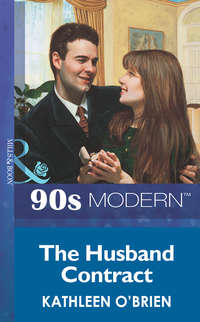
Полная версия
The Vineyard of Hopes and Dreams
She shook the feeling away. Dark or light, it was just a house. She would be fine.
The Eliots stood on the front porch and watched her walk up through the vineyard. She turned at the last minute, before the dip in the land would obscure the view, and waved merrily. She was fine. They waved back, and she thought she heard Elena call her name.
She waved again. She was fine.
Then she turned back toward the large, two-story adobe house, with its orange-tile roof and arched colonnades extending to either side like outstretched arms. Roland must have put some lights on timers, because several of the windows glowed, long rectangles of amber illumination that should have looked welcoming, but instead just looked unnatural, knowing, as she did, that no one was inside.
Weeds grew up at the edge of the rows of vines, making the path uneven. She kept her eyes on the ground and kept going, glad for a reason to ignore the strange tricks the moonlight played with the wire supports. In her peripheral vision, the metal winked randomly, giving the illusion that something moved among the leaves.
Ridiculous. She was fine. No matter how haunted the place might feel, she didn’t believe in ghosts. And even if she had believed, she wouldn’t give her father’s ghost the satisfaction of driving her out of the house again. He was gone. He had not found her, or Genevieve. Even her mother had died in peace. They had all officially survived him.
So that meant she was the one with the power now. She would sell his house, and his vines, and go back to Florida. She would never, ever think of him again. He would rot here, unloved and unmourned.
Hey, Dad, she thought, gathering her courage into one bitter burst of defiance as she neared the house. I’ll give you something to be afraid of.
But just as she put her foot on the first step of the porch stairs, a large, man-shaped form disengaged from the arches of the western colonnade. She froze in place, her hand foolishly at her throat.
Oddly, her first thought was—could it be Greg?
But that was silly. Why would Greg follow her here, all the way from Florida? He was a doctor. He was busy. People depended on him. Even though his behavior during their break-up had given her a mild case of the creeps, he wasn’t a fool. He wouldn’t chase after a woman who had already made it painfully clear that they were through.
“I’m sorry to come so late,” the man said politely. He continued to move forward, his steps silent on the tiled floor, until he emerged from the shadows. Moonbeams silvered one side of his face.
The light only confirmed what she already knew, from those few syllables of his husky voice. The man who waited here in the darkness wasn’t a ghost, and he wasn’t Greg.
Once again, she had come face-to-face with Colby Malone.
CHAPTER THREE
“I’M SORRY,” he repeated carefully, trying to give her time to adjust. “I didn’t mean to frighten you.”
“I wasn’t frightened,” she said.
But he knew that was a lie. Her face was white. She would naturally be twitchy, coming back here after so long, especially under these circumstances. And no woman alone in an isolated spot could possibly enjoy seeing a stranger emerge from the shadows.
Weird, thinking of himself as a “stranger.” But no other word applied anymore. Back when they were teenagers, he’d waited for her so many times, right in this very spot. Once, her face would have lit up to see him, and she would have leaped into his arms, their two bodies stumbling back into the shadows with urgent kisses but no words, so that no one inside the house would hear.
Now, she froze at the sound of his voice, as guarded as a doe confronted by the barrel of a rifle.
“What do you want?”
Okay. He hadn’t expected a warm welcome, and apparently he wasn’t going to get one.
“I know it’s late, and you must be tired. I was going to wait until tomorrow, to give you time to settle in. But—”
Her face remained impassive. “What do you want?”
“Just to talk. I hoped we could talk.”
“Wouldn’t the phone have been better?”
He tilted his head, appraising this pale, collected woman who bore only the most superficial resemblance to the girl he used to know. She still had on the gray flared skirt and short jacket she’d worn to the funeral, but it didn’t look rumpled even after all these hours. The Hayley he used to know was always dressed in bright colors, always dashing about, her pink cheeks looking slightly fevered, her golden hair flyaway and fabulous.
“I would have been glad to call,” he said reasonably. “Except, I don’t know your number, remember? If you left Sonoma tomorrow morning, I wouldn’t have any idea how to find you again. I don’t even know what name you answer to these days.”
That wasn’t an exaggeration. He knew what name her mother had been using when his investigator found her, a dozen or so years ago. But she’d moved again after that, and the second time he tried to find her, about six months ago, no one of that name existed.
Bottom line was, he didn’t know anything, not one single solitary thing, about her anymore. He hadn’t even been a hundred percent sure she was staying here at the vineyard house, until he’d seen the car with rental plates in the front drive.
Leaving the cemetery after her brush-off today hadn’t been easy. The gossip among the other locals attending the service had been that Hayley would be staying in town, at least long enough to settle up her father’s affairs. But who knew if that was really true? Who knew whether Hayley Watson might decide to disappear into the night all over again?
“Colby,” she began, then stopped. She folded her arms, tucking her hands under them, as if the night air had chilled her fingers. “I don’t want to be rude, but I really don’t think we have anything to talk about, do we? As you said, it’s been a very long time. We are both different people now, and the past— Well, it just isn’t very relevant anymore.”
He heard the dismissal in her voice. His pride bucked once, trying to throw him, trying to compel him to walk away. The past was dead to her? Irrelevant? Okay, fine. She meant nothing to him, either.
He choked off the inner voice. That was just the huffy and stupidly proud teenager inside him talking. He was disappointed to discover that, after all these years, remnants of that self-centered jackass still remained.
“Hayley,” he said, working hard to avoid sounding pushy or entitled. “I understand that you may well have nothing to say to me. But I have something I’d like to say to you.”
She wasn’t going for it. He could tell by the way her full lips tightened. “Colby, I—”
“Please,” he said. It wasn’t a word she—or anyone else—had often heard him utter. “I’ve owed you an apology for seventeen years, and I don’t want to lose this chance to make it now.”
She clearly hadn’t been expecting that. Her arms fell to her sides, as if suddenly limp with surprise. Her gaze scanned his face—though he had no idea what she searched for.
Finally she nodded. “All right,” she said. “I’m listening.”
He glanced at her lightweight suit—a sign that wherever she lived probably didn’t have the chilly nights of Northern California. “You look cold. May I come in?”
“No.”
He had to laugh at little at that. “You aren’t planning to make this easy for me, are you?”
She smiled, too, but it was cool and unamused. “I’m not planning to make it difficult for you, if that’s what you’re implying. But neither do I see why it’s my responsibility to make it easy. I didn’t ask for an apology. I don’t require one, and I don’t think you owe me one. As I said, I believe it’s all ancient history, and best left alone. You’re the one who seems to feel it’s important.”
He felt slightly stunned, as if her attitude were an unexpected jab to the gut. He had really been a romantic idiot, hadn’t he? All this time he’d secretly thought that, if they were ever to meet again, even if it was by accident, on a crowded street, some irresistible force that had survived the whole heartbreaking mess would draw them together.
Like some sad sack in a chick flick, he had actually believed that, if he ever got the chance, he could make things right.
He looked straight into her blue eyes. “God, Hayley. Are you really as indifferent as you sound?”
“Yes.” She shrugged. “I’ve had seventeen years to make peace with what happened. I’m not saying I wasn’t angry at first. I’m not saying it wasn’t hard. But it’s over. Life goes on.”
She didn’t so much as blink. He couldn’t detect even a microscopic flinch that might have suggested she lied. She still looked only tired, cold and slightly irritated.
“Fair enough,” he said, refusing to be thrown off his course, even by that total apathy. “But the truth is, I’m still looking for the peace you say you’ve found. I’ve done a lot of soul searching over these years. And I think the reason I can’t get over…over what happened…is that I was to blame.”
She didn’t contradict him. She just waited.
“What I did was indefensible, Hayley, and I’ve never had a chance to apologize. I’ve never had a chance to make it right.”
He thought he might have seen a sudden flare of color in her cheeks, but when she moved, the light changed and the pink disappeared. She shook her head once, crisply. “Those are children’s words, Colby. There’s no making it right. In the real world, there are some mistakes you can’t undo.”
“Maybe. But I still need to say it. I need to tell you how sorry I am. From the minute you told me you were pregnant, I knew the baby was mine. I knew there hadn’t been any other men—boys…”
He cringed at the awkward phrasing. Where had all his fantasy speeches gone? In his dreams, he was so eloquent he moved her to forgiving tears. Where had all those powerful words gone now that he finally needed them?
She still didn’t move a muscle. But she was clearly listening. And that was something, he supposed.
“I was a coward. Partly, I was afraid of what my grandparents would think.”
Hayley’s news had come only three months after his parents’ deaths. He’d been eighteen, grieving, both for his beloved mom and dad, and for the loss of his sheltered, idyllic life. His grandparents, who were the strongest people he knew—then or now—had been devastated by the death of their son and daughter-in-law, but they’d rallied for the sake of the boys.
How could he tell them he’d let them down already? How could he add another disaster to their burden? That’s actually how he had thought of the baby: a disaster. And so he’d jumped through the one escape hatch he could find. He and Hayley had always been off-again, on-again. For a teenager, the forty minutes between San Francisco, where Colby lived, and Sonoma, where Hayley lived, might as well have been half a world away.
He’d met her the summer he was sixteen, when he’d been sent to the little Sonoma town of Ridley to work in the Diamante just opened there. They’d dated all summer, and they’d hung out sometimes over the school breaks, too—Christmas, Thanksgiving, Halloween, spring break. Then the next two summers, he’d requested the Ridley assignment again, and picked up right where he left off with Hayley.
But that last summer, they’d broken up. A fight about Colby going away to college. The gossip that had been circulating among their friends was that she’d taken up with her old boyfriend, who was consoling her in the time-honored way.
Colby’s pride had been wounded when he heard the rumors, and he wasn’t in the mood to believe her when she came to him, crying and saying she was going to have a baby. He told himself she was just trying to trap him. She’d been needy all summer, fearful that he’d forget her when he left for college in the fall.
So that’s what he had told his grandparents—that, even if her story was true, and she was pregnant, Hayley had probably slept with another boy. She was just trying to pin it on Colby because he was richer and a better catch.
Whether they believed him or not, they backed him. They’d met with Ben and Evelyn Watson and told them that their grandson felt he was being wrongly accused. They requested a paternity test.
Nana Lina and Grandpa Colm had seemed satisfied, and reported that the meeting had been more civilized than they’d expected, given Ben Watson’s temper. But that night, without a word to anyone—including Colby—Evelyn Watson and her two daughters had driven off into the night, never to return to Foggy Valley Vineyard.
He’d been shocked, but selfishly, a little relieved. Colby had told himself, and his grandparents, that her flight was proof enough that she’d been lying.
It made him wince to think of all that now. Who did that kind of thing? He’d been one mixed up young man that year, but that was no excuse.
Hayley seemed to have been digesting his statement about being afraid to tell Nana Lina and Grandpa Colm. Her jaw and mouth had a hard, cynical set—and he suddenly realized he had seen that look before. That was the look she had turned on him when he asked her if she was sure the baby was his.
“Your grandparents worshipped the three of you,” she said. “Their perfect young lions. They might have been angry, but they would never have stopped loving you. They would have supported you, no matter what.”
She was right, of course. His fear of letting them down had been only part of his motivation for being such a fool. The other part was even less admirable.
“I know,” he admitted grimly. “The truth was, I simply didn’t want to believe the baby was mine. I was spoiled, and I was excited about going away to college—the girls, the parties, the whole frat-boy experience. I didn’t want to be tied down with a wife and baby.”
“No,” she said, her tone dry. “Of course you didn’t.”
He didn’t blame her for the sarcasm. It was a lot less than he deserved. In fact, he might have felt better if she had yelled at him, or slapped him or burst into tears. The idea that he was too unworthy to hate made him feel cold, and strangely empty inside.
“At first,” he went on, “when I heard you were gone, I was actually relieved. I know how it sounds, but it’s the ugly truth. I thought I’d dodged a bullet.”
“Charming way to put it,” she said evenly. “But tell me. When, exactly, did you have this epiphany? When did you change your mind about the bullet? Seventeen years ago?” She smiled. “Yesterday?”
“It happened gradually,” he said, trying to be as honest as possible. But there was no easy answer. At first, he’d been in deep denial, joining a fraternity and partying like a madman, collecting great-looking coeds the way little boys collected baseball cards. He hadn’t let his grades slip, either. Straight A’s all the way, right through Stanford Law. It was as if he had to do everything, have everything, be everything—to justify not being the father of Hayley’s baby.
“I think it really started when I got out of law school. Before that, I kept so busy, and I was focused on that grand prize, the big law career. When I got a job at my first-choice firm, I expected to be completely happy. But I wasn’t. I started trying to figure out why.”
She made a dismissive sound. “The quarter-life crisis. Everybody has one. I think it’s rather classic, when you first start spending all day behind a desk, to wax sentimental about the carefree days of youth.”
“That’s fair,” he said, determined not to argue. “I’m sure there was some of that.”
He’d thought exactly the same thing, at first. Quarter-life crisis. The “is that all there is?” moment. He’d started playing handball on his lunch break, sailing the MacGregor, the family sailboat, every weekend, and finding even more beautiful women to date. He’d cut back on sleep, so that there could still be plenty of time for fun.
He got exhausted. But he didn’t get happy.
“Anyhow, that was when it started.” He wondered if he should tell her about the private investigator, but immediately decided against it. This was an uphill battle already. “But it was more than that. Finally, I just stopped kidding myself. I had been a selfish bastard, and I was going to have to pay for it the rest of my life. I was never going to forget about the baby you were carrying when you left that night. I was always going to be haunted by the knowledge that, somewhere, someone was raising a child who should have been ours.”
For the first time, she looked confused. “Someone? What do you mean ‘someone’?”
“The…people, the family…” he said, stumbling in the face of her transparent bewilderment. What did that mean? Was she shocked that he knew? “The people who adopted the baby.”
She drew her head back. “What makes you think I gave the baby up for adoption?”
“Because—your father said…” He couldn’t seem to form words correctly. “Your father said you did.”
“Ah.” She smiled coldly. “My vicious, drunken father? And you believed him?”
“Yes.”
“I see,” she said. “Did this piece of information by any chance come with a price tag?”
He shook his head. “He told me that much for free. If I wanted to know how to find the adoptive family, though, he said that was going to cost me five thousand dollars. But I never got the information, and he never got the money. He died before I got the chance.”
“Well, that’s a bit of good luck. Because you would have paid all that money for nothing. He might have given you a name, maybe even an address. But it would have been bogus. You should have known that. Like so many alcoholics, the man was a consummate liar.”
He frowned. “How can you be so sure it would have been bogus? Are you saying you didn’t give the baby up for adoption?”
His mind was reeling. When his investigator found Hayley, he had reported that she was single, living with her mother and sister and no one else. Eventually, when Colby finally stopped kidding himself that the pregnancy had been fictional, he’d assumed she’d decided on adoption. It had made a cruel sense. Alone, on the run, three women supporting themselves with menial jobs that required little documentation… How could Hayley have done right by a child in that scenario?
Besides, in his heart of hearts, he couldn’t believe that she would have raised their child, year after year, milestone after milestone, birthdays, and Christmases and acne and math, without ever sending Colby so much as a photo. Her heart couldn’t have been that hard, no matter how reprehensible his actions had been.
“Hayley, answer me. Is that what you’re saying? You didn’t give the baby up?”
“No,” she said flatly. “I didn’t give the baby up.”
He couldn’t take it in. “But—then—where is he?”
“He’s nowhere,” she said dully. “There is no baby.”
“I don’t believe it.” He shook his head stubbornly, not caring how stupid it sounded. “I don’t believe it. You weren’t lying to me that night.”
“No. I wasn’t lying. When I left here seventeen years ago, I was pregnant, and you were the father. But you’ve tortured yourself all these years for nothing. There is no baby.”
He took in a breath, trying to fill his lungs, though no matter how hard he tried, they continued to burn from lack of air.
“Why?” His mind suddenly latched on to an unthinkable answer. “Oh, my God, Hayley, surely you didn’t—”
“Damn it. No.” Her eyes narrowed. “Look, I don’t talk about that night, Colby. Not ever, not to anyone. But—because—well, let’s just say for old times’ sake, I’m going to tell you this. Though, as far as I’m concerned, you have no right to know. There is no baby, because that night—”
Her eyes sparkled where the moonlight touched them, though her face was still as hard as if she were a mannequin, made of plastic. “That night, before we even reached the California state line, I lost him.”
He was still shaking his head. He felt as if she spoke in some language he had never heard before. “Lost him?”
“Yes,” she said. “In the backseat of my mother’s car, surrounded by our suitcases and everything we could get out of the house without waking my father, I miscarried.”
She put out her hand. For a confused second, he thought she might be reaching for him, and he started to extend his own. But then he saw a key glint. She placed it neatly, deftly, in the lock and turned it. The front door opened with the squeak he’d last heard seventeen years ago.
“Go home, Colby,” she said, her tones frighteningly detached, though he suddenly saw that her face ran with tears. “There is no child, and there’s nothing more for us to say.”
CHAPTER FOUR
HAYLEY WAS TREMBLING when she shut the door behind her. She pressed her back against the wood, flattening her shoulder blades, as if she thought Colby might try to batter it down. Her breath came quickly, like a heroine in a horror movie who had escaped just in the nick of time.
She scoffed at herself for being so melodramatic, hoping she could force herself to calm down. But as she surveyed the room in which she’d taken refuge, she didn’t feel much better.
The foyer was dimly lit by a fake chandelier. Its dangling pieces of plastic, which had been cut to look like crystals, were furred with dust.
The entry area had seemed sad, pale and oddly smaller when she and Roland had dropped by this afternoon. It looked much different now that it was night, now that she was alone.
And it teemed with memories. She glanced toward the far end of the hall, where it led to the kitchen, half expecting to see her father stalking through the opening, a beer in his hand and fury in his face.
For several long seconds, she stood there, heart racing, caught between two unbearable memories. Colby hadn’t left the porch, she knew that from the utter silence behind her. But inside… She shut her eyes, as if that would keep her father’s ghost from materializing.
Oh, God, she shouldn’t have come back to Sonoma. She shouldn’t have set foot in the vineyard, in the graveyard or in this house. So what if her father had wanted to be buried here, on Sonoma soil? She hadn’t needed to come. She should have hired someone to clean the house, as Genevieve had encouraged her to do, and then hired a real-estate agent to sell the property.
But, no—she’d called that plan too cowardly. She’d been so sure she could handle returning home. It would be healthy, she’d told Genevieve. She’d been so confident that, after seventeen years, she’d grown up enough to put her old life into its proper perspective.
She shook her head, feeling her hair pulling free of its careful French braid as it snagged on the tiny splinters of the old door. This was her lifelong sin—the sin of idiot optimism and dogged pride. From the time she was a little girl, she had always believed she could do anything. Sleep safely in treetops, marry the handsome superstar, flout the alcoholic tyrant.
She could still remember the last night she’d ever entered this house and thought of it as home. She’d come in late from work—one of the other cashiers had called in sick. For once, she hadn’t even been thinking about her dad, and whether he would be drunk. She’d been locked in her own private hell, worried about the baby, and angry about Colby’s inexplicable reaction to the news.
But not yet terrified. She had no idea that the Malones had come here to see her parents. She’d believed that her secret was still safe. And, fool that she was, she believed that, once Colby got over his shock, he would come around. He’d do the right thing. He loved her. Sure, they’d fought, and they’d broken up, but everyone knew that was just temporary. They belonged together. He loved her.
The minute she shut the door and dropped her keys on the hall table, her father appeared out of nowhere.
“You disgusting slut,” was all he’d said, and then she felt something hard and cold crash against her head. Later, she learned it had been his full beer bottle. She didn’t even remember falling to the floor, and she didn’t remember the rest, either, thank God. Had he kicked her as she lay there? Or had he hauled her up by the hair and punched her? The next day she’d found her own hair all over her shirt, so maybe he had.









